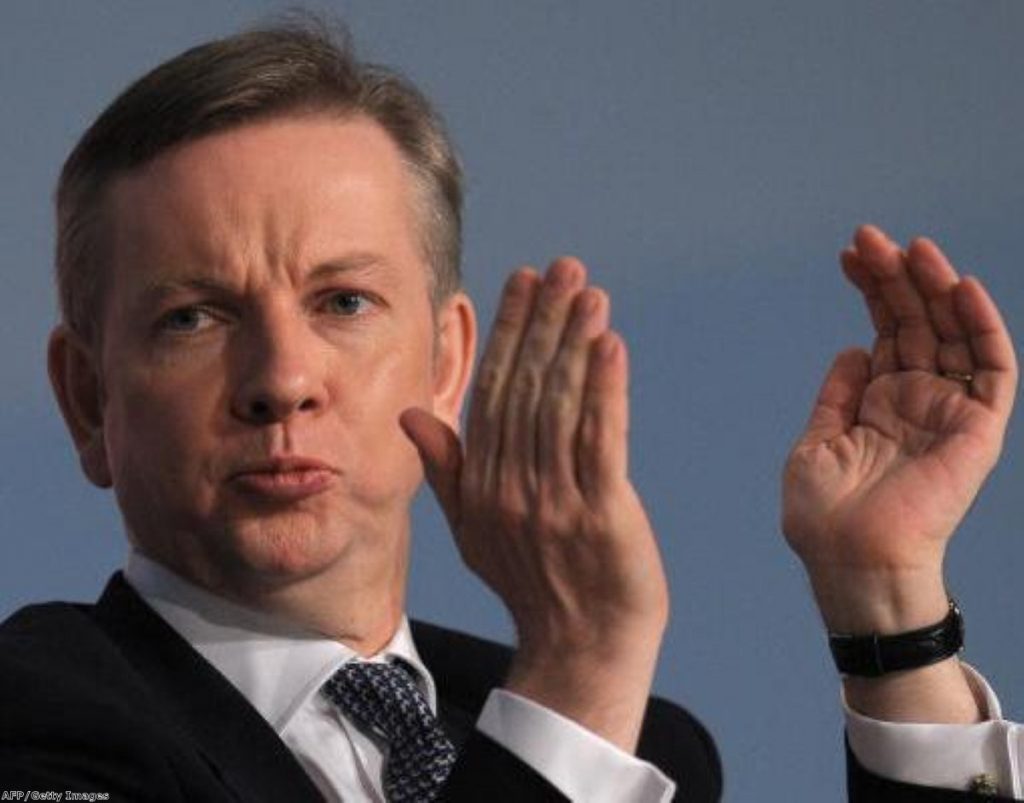Gove paves way for purge of the teachers
By Alex Stevenson Follow @alex__stevenson
Headteachers will find it much easier to get rid of poorly performing teachers under a shakeup of rules from Michael Gove.
The education secretary is set to replace 50 pages of guidelines with new teaching standards, as part of a package of measures to improve standards in England's schools.
Headteachers will no longer be prevented from spending more than three hours in a particular classroom under the reforms, which will also prevent poor teachers from simply moving to another school.
"You wouldn't tolerate an underperforming surgeon in an operating theatre, or a underperforming midwife at your child’s birth," Mr Gove told the Mail newspaper.
"Why is it that we tolerate underperforming teachers in the classroom? Teachers themselves know if there's a colleague who can’t keep control or keep the interest of their class, it affects the whole school.
"Children themselves know they are being cheated. Ultimately we owe it to our children. They are in school for 190 days a year. Every moment they spend learning is precious. If a year goes by and they are not being stretched and excited, that blights their life. We have got to think of what’s in the children's interests first."
The Department for Education has pointed to teaching surveys suggesting that six in ten teachers want to make it easier to deal with underperforming colleagues.
But the changes have divided the teaching unions. The National Union of Teachers' general secretary, Christine Blower, labelled the changes a "bully's charter", although the National Association of Head Teachers responded more positively.
Its general secretary, Russell Hobby, said: "There is so much good practice out there that I think the profession has nothing to fear.
"Clearer systems of performance management are one way to build up the professional reputation of teachers and get those outside the classroom to let the experts get on with the job."
Three per cent of schools are currently judged inadequate for teaching.
Only 17 staff have been formally struck off for incompetence by the General Teaching Council in the last ten years, figures show, but many more will have moved on following less formal measures being taken against them.
"Each teacher is an individual," Mr Gove told the BBC News channel.
"Some of them after a tough conversation may be in a position to improve… with the right support I think that's the solution. But sometimes there will be people who can't or won't respond to that. And then you need to make sure that children don't offer."
He refused to offer an estimate of how many teachers could find themselves out of a job as a result of the changes.
This might suggest he had prepared a "personal Gove hitlist", he explained.





-01.png)